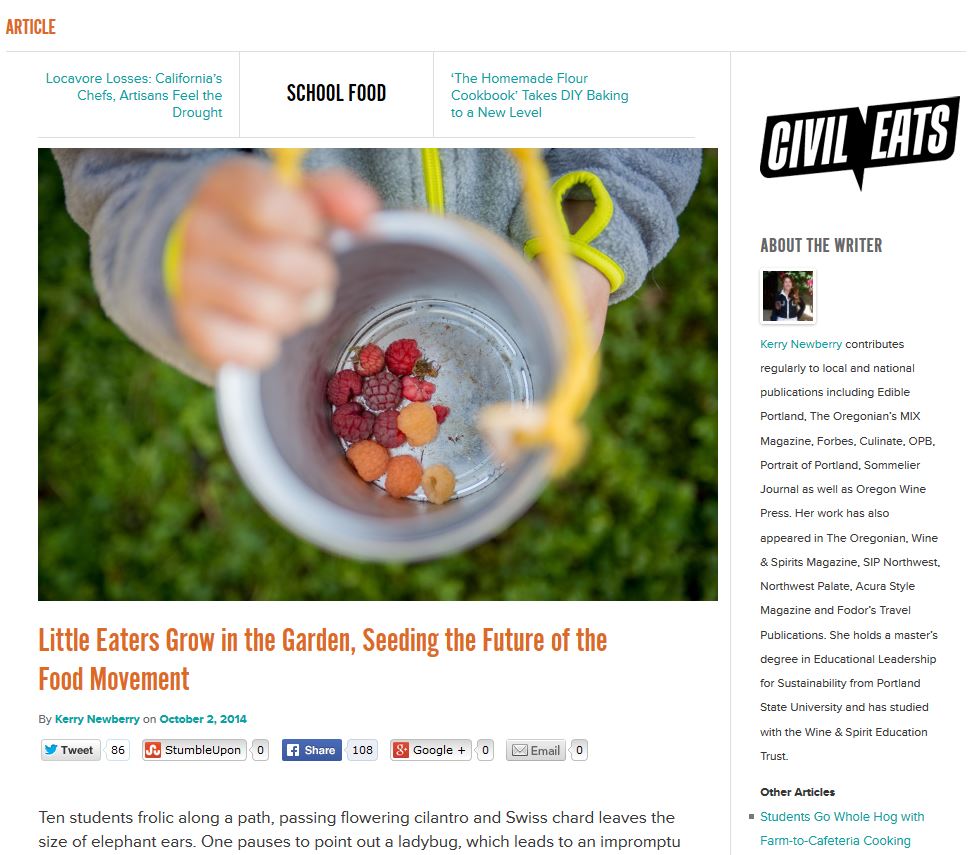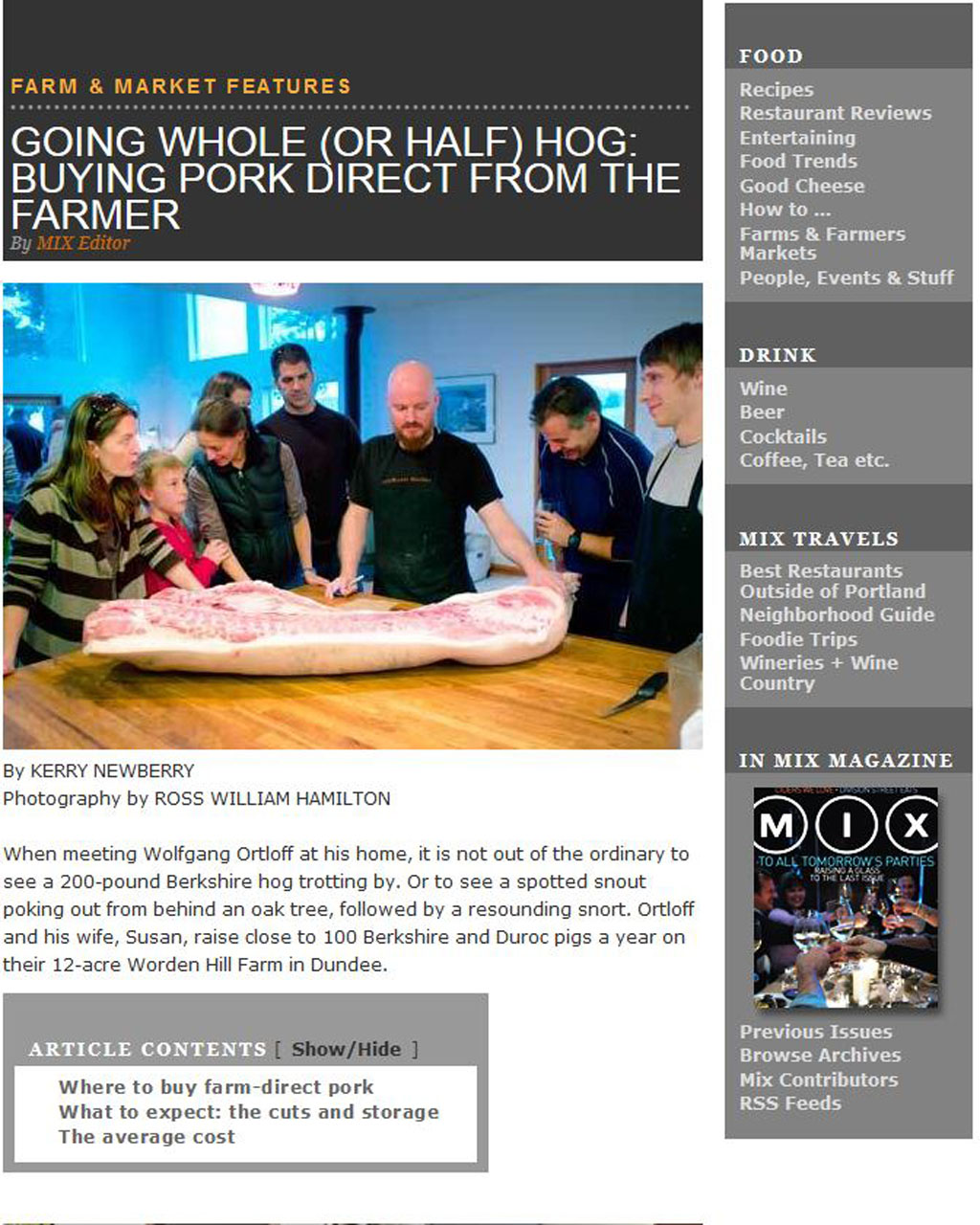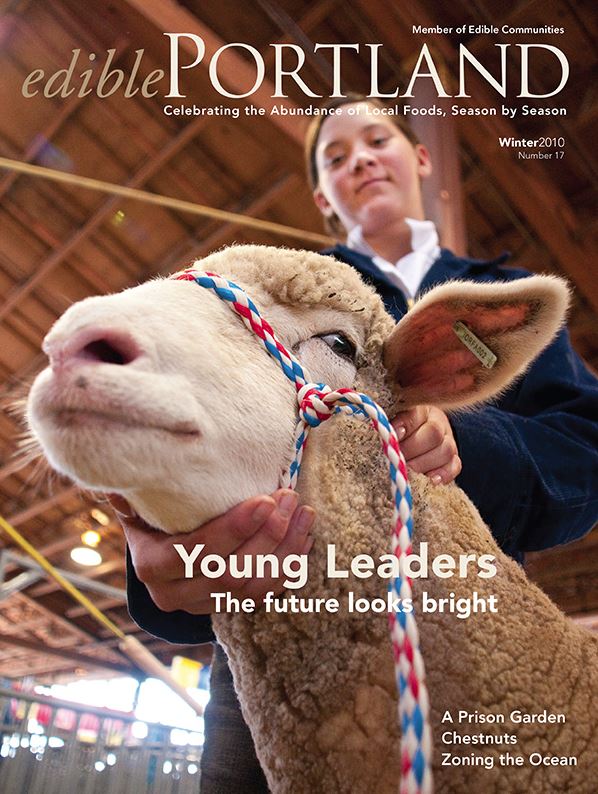A New Day: The littlest eaters grow in the garden, seeding the future of the food movement

Edible Portland, Fall 2014
The littlest eaters grow in the garden, seeding the future of the food movement
Ten students frolic along a path, passing flowering cilantro and Swiss chard leaves the size of elephant ears. One pauses to point out a ladybug, which leads to an impromptu lesson from gardener Suzanne Stone about aphids. Another student marvels at periwinkle-blue borage blooms, an opportunity to teach companion planting and culinary herbs.
This is a garden class at New Day School in southeast Portland, preschool for two-and-a-half to five-year-old children that enrolls between 80 to 100 students throughout the year.
Classes take place in two brightly colored buildings, behind which is a playground and a half-acre garden plot. Beds of edible greens, heirloom vegetables, and kitchen herbs sprout among berry bushes and fruit trees — a mix of fig, plum, apple, and cherry, which number close to twenty.
“We are trying to create a food forest,” says Stone — or Gardener Suzanne, as the students call her — who uses the garden as a teaching space throughout the year.
Today, under a blue sky, Stone is leading the Skylark class. Each five-year-old student holds one hen-speckled bean in their hand. “Let’s plant our bean and cover it with a blanket of soil,” says Stone, as the group gathers in what is known as the kitchen garden.
After tucking the beans into the earth, the class serenades the seeds to grow: Stone asks the students to shout to the sky for water and then whisper to the seeds so they know who they are. A chant of “Ireland Creek Annie Bush Beans” follows in unison — the class claps with each syllable of the bean’s name.
The garden classroom at New Day School is one example of a farm to preschool program — a growing movement that connects young children (ages 0 to 6) with local foods. The farm to preschool movement was born from the thriving national farm to school movement, which, until recently, was focused primarily on children in grades K-12. About five years ago, a growing body of evidence surfaced showing that long-lasting habits and attitudes toward food are formed before children enter kindergarten.
The research convinced a handful of farm to school practitioners that early child-care and education settings were the next critical venue to target for the promotion of healthy eating.




